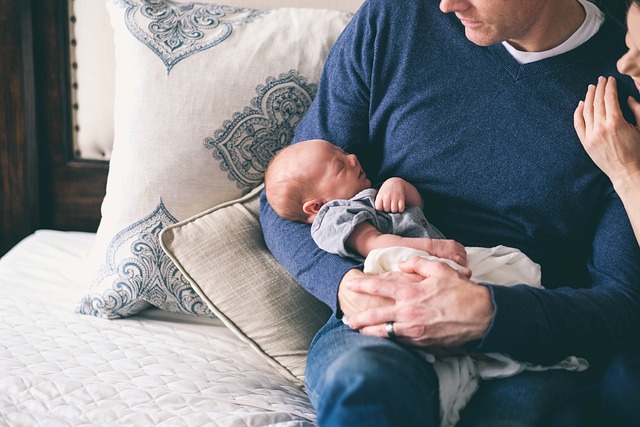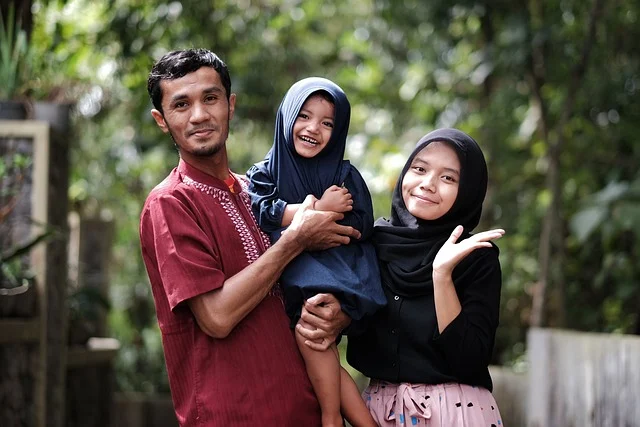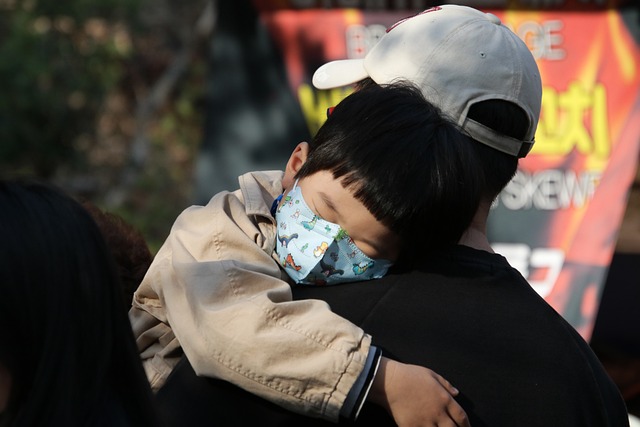Table of Contents

Introduction
Parenting is a journey of love, joy, and challenges that requires patience, resilience, and constant learning. As guardians, we are invested in the future of our children, and it’s only natural to worry about their safety, happiness, and overall well-being. However, when the line between concern and chronic anxiety becomes blurred, it can have profound implications for our offspring. Parental anxiety is a persistent state of fear and worry that, while rooted in love and protection, can inadvertently shape children’s emotional, behavioral, and social development.
This comprehensive blog series will explore the intricate tapestry of parental anxiety and its effects on children. We’ll outline 10 alarming signs that parents should be vigilant of and discuss the science behind anxiety transmission, the impact of chronic anxiety on children, and strategies to mitigate its effects. Our aim is to empower parents with the knowledge to recognize the signs, understand their impact, and create an environment that promotes healthy growth and resilience in their children.
The Science Behind Parental Anxiety Effects Transmission
Understanding the transmission of parental anxiety to children is crucial for developing effective interventions and support systems. Research has identified several pathways through which parental anxiety can influence child development, including genetic predispositions, environmental factors, and behavioral modeling.
Genetic and Biological Factors
One significant pathway is the shared genetic load between parents and children. Children may inherit a predisposition to anxiety disorders, making them more susceptible to developing similar issues. Additionally, maternal experiences during pregnancy, such as stress and anxiety, can affect fetal development, potentially leading to heightened anxiety sensitivity in offspring.
Behavioral Modeling
Parental behaviors play a pivotal role in the transmission of anxiety. Anxious parents often model avoidance behaviors and negative coping strategies, which children may internalize. For instance, when parents react with fear to certain situations, children learn to perceive those situations as threatening. This modeling can create a cycle where children’s anxious responses are reinforced by their parents’ behaviors.
Dyadic Interactions
Recent studies emphasize the importance of dyadic social dynamics in understanding this transmission. Dyadic synchrony, or the coordinated emotional exchanges between parent and child, can significantly influence how children respond to stress. When parents exhibit anxious behaviors during interactions, children may become attuned to these emotional cues, leading to increased anxiety.
Intervention Strategies
To mitigate the effects of parental anxiety on children, it is essential to implement targeted interventions. These may include teaching parents healthier coping mechanisms and promoting positive parenting practices that foster resilience in children. Encouraging open communication about emotions can also empower children to express their feelings and develop effective coping strategies.
Understanding the Complex Parent-Child Bond
The relationship between parents and their children is one of the most significant influencers of emotional and psychological well-being. This connection is established through the foundational elements of trust, safety, and unconditional love, which set the stage for a child’s perception of the world and their approach to forming relationships.
When a parent is gripped by anxiety, the emotional climate of the home shifts. Children, being highly attuned to the emotional cues of their caregivers, can pick up on subtle changes in body language, vocal tone, and the way challenges are handled. These cues can imprint a sense of fear or unease on a child’s developing psyche.
Biological Foundations of Anxious Inheritance
Research indicates that there is a genetic component to anxiety, suggesting that children of anxious parents are more likely to inherit a predisposition to anxiety disorders. While genetics do not predetermine a child’s mental health destiny, they do establish a backdrop against which environmental factors, such as parenting style and family dynamics, play out.
Environmental Factors in Anxiety Transmission.
Parental anxiety is not only passed down through DNA but is also learned through observation and experience. Children are sponges, soaking up the behaviors and attitudes of their parents. For example:
If a parent obsessively worries about health issues, a child may develop a persistent fear of getting sick or becoming contaminated by germs.
If a parent avoids social engagements due to fear of judgment or embarrassment, a child may learn to perceive social settings as unsafe or overwhelming.
This environmental learning is particularly potent during early childhood, a time when the brain is highly receptive to the cues and patterns of behavior it observes.
Chronic Anxiety’s Reach into Childhood
The persistent presence of anxiety in the parental figure can lead to a range of issues for children:
Emotional Disturbances: Children may experience difficulty regulating their emotions, fluctuating between extremes of emotion or becoming withdrawn.
Cognitive Challenges: The constant barrage of anxious thoughts can impair a child’s ability to focus, problem-solve, and develop self-assurance.
Physical Manifestations: Stress hormones like cortisol can increase in children exposed to high-stress environments, contributing to sleep disturbances, frequent illnesses, and various physical symptoms.
By exploring these mechanisms, we can shed light on the ways in which our anxieties may inadvertently affect our children and prompt a more conscious approach to managing our own emotional well-being.
- Ten Alarming Signs of Parental Anxiety in Children
- Excessive Fear and Phobia Development
Children raised in households with anxious parents tend to exhibit heightened fear and are more prone to developing specific phobias. For example:
If a parent is overly vigilant about safety, a child might develop an irrational fear of the outside world, such as a fear of crossing the street or interacting with unfamiliar people.
These fears can severely limit a child’s willingness to explore and take the calculated risks necessary for their cognitive and emotional growth.
- Difficulty with Emotional Regulation
Emotional dysregulation is a common byproduct of living with anxious parents. Children may exhibit behaviors such as:
Intense anger or frustration in response to minor setbacks.
Prolonged sadness or distress over seemingly trivial matters.
An ongoing struggle to return to a calm state after becoming upset.
This emotional volatility is often a reflection of the parent’s anxiety, as children unknowingly absorb the stressful energy that permeates their environment.


Physical Symptoms of Psychological Stress
Children who are frequently exposed to anxious parents may begin to express their anxiety physically. Common somatic symptoms include:
Headaches or stomachaches with no apparent medical cause.
Fatigue that is not explained by physical exertion or illness.
Chronic muscle tension or unexplained physical discomfort.
These symptoms highlight the intricate connection between mental and physical health and the profound impact anxiety can have on the developing child.
Disrupted Sleep Patterns
Anxiety in the household can disrupt a child’s sense of security, which is essential for restful sleep. Signs of sleep disturbances include:
Insomnia or difficulty falling asleep.
Frequent and vivid nightmares.
Trouble staying asleep, leading to restless and non-restorative slumber.
Sleep issues can exacerbate mood swings, inattention, and anxiety levels during the day, creating a vicious cycle that affects the child’s overall well-being.
Perfectionism and Fear of Failure
Anxious parents might inadvertently communicate that failure is unacceptable, leading children to adopt perfectionistic tendencies. This can result in:
An overwhelming fear of making mistakes.
A relentless drive to meet unrealistic expectations.
Avoidance of challenges or risk-taking due to fear of disappointment.
While aiming for excellence can be beneficial, excessive pressure can lead to burnout and damaged self-esteem.
Retreating from Social Interactions
Children of anxious parents may internalize fears of social rejection or judgment, resulting in:
Reluctance to form new friendships.
Difficulty in engaging in group activities.
Discomfort in novel or unstructured social situations.
Such withdrawal can significantly impede a child’s social development and affect their ability to form deep connections with others.


Overwhelming Academic Pressure
Parental anxiety about academic success and the future often translates into intense academic pressure on children. This can result in:
Feelings of being overburdened by schoolwork and expectations.
Severe stress or anxiety about tests and performance.
A fearful approach to discussing academic challenges with parents.
This constant pressure can lead to a negative attitude toward learning and hinder the child’s academic progress.
Dependence and Separation Anxiety
Anxious parents may inadvertently foster dependency by being overly protective. Consequences of this dynamic include:
Difficulty making decisions independently.
Reliance on parental reassurance for even minor matters.
Clingy behavior, such as refusing to attend school or events without a parent present.
This lack of autonomy can impede a child’s ability to develop resilience and self-reliance.
Behavioral Outbursts and Acting Out
Some children may respond to the stress of parental anxiety by acting out in various ways, such as:
Tantrums or extreme emotional reactions.
Aggressive behavior or defiance.
Risky or oppositional actions that serve as a release for bottled-up tension.
Low Self-Esteem and Diminished Confidence
Chronic anxiety in the parent-child relationship can lead to a child developing a negative self-image. They may:
Doubt their capabilities and shy away from new opportunities.
Feel inadequate and fearful of not meeting expectations.
Struggle with self-confidence issues that can persist into adulthood.
Why Parents Might Overlook These Signs
Parental Awareness and Blind Spots
Anxious parents may be so engrossed in managing their own fears that they fail to notice the subtle shifts in their child’s behavior. Moreover, they might attribute these changes to typical developmental stages or personality traits.
Minimizing or Denying the Impact
Parents might dismiss their child’s challenges, viewing them as temporary or as part of growing up. This minimization can prevent them from acknowledging the depth of the issue and the role their anxiety might play.
Cultural and Social Expectations
In societies where stoicism or the appearance of perfection in parenting is valued, parents may feel ashamed to confront their anxiety or its effects on their children. This can lead to a lack of awareness or an unwillingness to seek help.
Embracing Self-Reflection to Break the Cycle
Self-reflection is a critical step in addressing and managing parental anxiety. It involves asking difficult questions:
What are my anxiety triggers, and how do they manifest?
How do I cope with stress, and what message does this send to my child?
Am I modeling the emotional regulation and coping skills that I wish to instill in my child?
By engaging in practices such as mindfulness, journaling, and seeking professional guidance, parents can gain a deeper understanding of their own anxiety patterns and the potential influence on their children.
Strategies to Reduce the Impact of Parental Anxiety on Kids
Encouraging Open Dialogue
Facilitate an environment where children feel comfortable expressing their emotions without fear of judgment. This can foster emotional intelligence and resilience.
Instilling Resilience
Equip children with the tools they need to navigate life’s challenges by promoting problem-solving skills, fostering self-confidence, and encouraging adaptability.
Demonstrating Healthy Coping Strategies
Model positive ways of managing stress, such as mindfulness, physical activity, or engaging in hobbies, so that children learn to handle adversity constructively.
Creating a Sanctuary of Safety and Support
Ensure your home is a haven where your child feels secure and valued. This environment can act as a buffer against the effects of external pressures and anxieties.
Seeking Professional Support
When anxiety becomes a significant concern for either the parent or child, consider seeking guidance from therapists or counselors who specialize in family dynamics and childhood development.
Addressing Generational Anxiety Patterns
Acknowledging and working through one’s own anxiety can disrupt the cycle of intergenerational anxiety transmission. Small, intentional changes in communication and behavior can have a significant impact on future generations.
Real-Life Stories of Triumph Over Anxiety
Sharing personal narratives of families who have faced and overcome challenges stemming from parental anxiety provides hope and practical advice for those navigating similar terrain.
Reflecting on the Journey Towards a Healthier Family Dynamics
Parenting with anxiety is a challenging endeavor, but with consciousness and proactive efforts, we can cultivate a supportive and nurturing environment that allows our children to flourish. Recognizing the signs and reaching out for support are pivotal steps toward creating a legacy of emotional strength and resilience.


In conclusion,
the complex interplay between parental anxiety and its effects on children warrants careful attention and consideration. By understanding the underlying mechanisms, parents can take meaningful steps to reduce the impact of their anxiety on their children’s lives. Through awareness, reflection, and action, we can help break the cycle of anxiety and empower our children to grow into confident, emotionally healthy adults.
The complex interplay between parental anxiety and its effects on children warrants careful attention and consideration. Research has shown that when parents experience high levels of anxiety, it can significantly influence their children’s emotional and psychological development.
This influence can manifest in various ways, including increased levels of anxiety in children, difficulties in social interactions, and challenges in academic performance. Understanding the underlying mechanisms of this relationship is crucial for parents who wish to mitigate the negative effects of their anxiety on their children’s lives.One key factor to consider is the modeling of anxious behaviors. Children often learn by observing their parents, and if they see their caregivers responding to stress with anxiety, they may adopt similar coping mechanisms.
This modeling can create a cycle where parental anxiety fosters a sense of insecurity in children, leading them to develop their own anxiety issues. Additionally, anxious parents may inadvertently create an environment that is overly protective or critical, limiting their children’s opportunities to explore and engage with the world around them.By fostering awareness and reflection, parents can begin to recognize how their own emotional states impact their children.
This self-awareness is the first step toward making meaningful changes. Parents can benefit from seeking professional help, such as therapy or counseling, which can provide them with tools to manage their anxiety more effectively. As they work through their challenges, they can also learn healthier coping strategies that they can model for their children.
Taking action is essential in breaking the cycle of anxiety. Parents can create open lines of communication with their children, encouraging them to express their feelings and fears without judgment. By validating their children’s emotions and providing reassurance, parents can help cultivate resilience and emotional intelligence. Engaging in family activities that promote relaxation and connection—such as mindfulness practices, outdoor adventures, or creative projects—can also strengthen family bonds and reduce overall stress levels.
Ultimately, by understanding the intricate relationship between parental anxiety and child development, we can take proactive steps to empower our children. Through awareness, reflection, and action, we can help break the cycle of anxiety and foster an environment where our children can thrive emotionally. By equipping them with the tools they need to navigate life’s challenges confidently, we are setting the stage for them to grow into resilient, emotionally healthy adults who are capable of facing adversity with strength and grace.
Parental Anxiety Effects Parental Anxiety Effects Parental Anxiety Effects Parental Anxiety Effects Parental Anxiety Effects Parental Anxiety Effects Parental Anxiety Effects Parental Anxiety Effects Parental Anxiety Effects Parental Anxiety Effects Parental Anxiety Effects Parental Anxiety Effects Parental Anxiety Effects Parental Anxiety Effects Parental Anxiety Effects Parental Anxiety Effects Parental Anxiety Effects Parental Anxiety Effects Parental Anxiety Effects Parental Anxiety Effects Parental Anxiety Effects Parental Anxiety Effects Parental Anxiety Effects Parental Anxiety Effects Parental Anxiety Effects Parental Anxiety Effects Parental Anxiety Effects